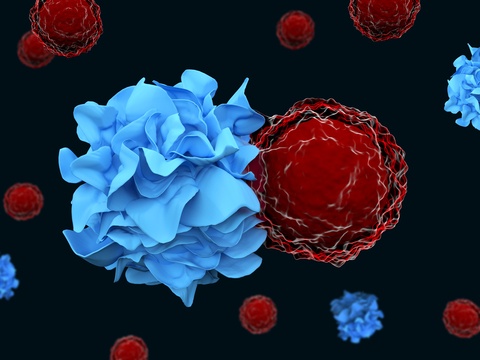New Potential Blood Biomarker for Pleural Mesothelioma
A team of researchers just published a study looking at whether a gene called FGF18 can be used as a biomarker for pleural mesothelioma. The study was published in the journal Thoracic Cancer. Signs and Symptoms of Pleural Mesothelioma Malignant mesothelioma is a type of cancer that develops from the thin layer of tissue that covers many of the body’s internal organs. When it grows in the lining of the lungs, it is called pleural mesothelioma. Signs and symptoms may include shortness of breath due to fluid around the lung, chest pain, cough, and fatigue. This cancer is caused by exposure to asbestos. Conventional treatment may include surgery, radiation therapy, and. The median survival with conventional treatment is little more…









